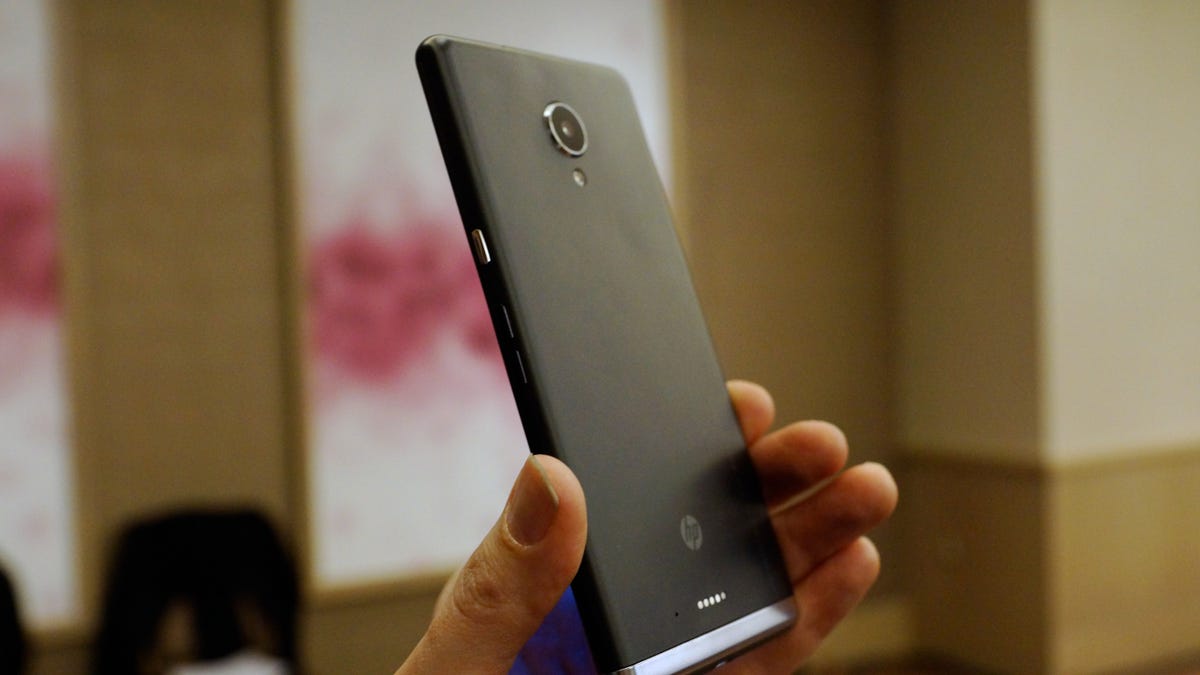HP, one of the biggest names in printers and computers, also has a history of making phones. No, really.
The Palo Alto, California, company has largely flown under the radar with its phones because, well, they’ve all flopped.
But that isn’t deterring the world’s second-largest PC maker from trying again with the HP Elite x3, which it revealed Sunday at the Mobile World Congress trade show in Barcelona. This time, HP is hoping a new approach will help, with the company pitching the Windows-based, 6-inch-display phone as the ideal device for work.
That HP keeps trying to get into the phone business underscores the importance of the mobile device as the center of your digital life. The company’s latest attempt to break into the market comes as consumers steadily shift from the laptop to the phone for their everyday needs. HP, which late last year split from its higher-flying professional business, now called Hewlett Packard Enterprise, also needs to work harder to stay relevant in the tech world.


The HP Elite x3 wants to get to work.
Ben Fox Rubin/CNET
HP will build the case that its HP Elite x3 is a true replacement for your laptop and desktop thanks to two key accessories. The first is a dock that uses the phone to power a desktop experience with a big screen and keyboard. The second accessory, called a “mobile extender,” is essentially a laptop with no brains inside, which the phone can run.
All three experiences — phone, laptop and desktop — try to tap into the full potential of Microsoft’s Windows 10 software and its Continuum feature, which lets users more seamlessly start tasks on one device, like a desktop, then finish on another, like a phone.
“I don’t think we can win that phone game just playing phone to phone,” Michael Park, HP’s global head of mobility, said in an interview ahead of the trade show. “This is a user experience game.”
The Elite x3 looks to be a big bet by HP to finally make a dent in the phone market. Yet, despite the company’s sizable name recognition and resources, HP faces considerable challenges in making its newest effort a success. For one thing, the company is hoping to rely on the fading trend of corporate-issued phones, and many firms are instead letting employees use their own devices for company work. Additionally, HP’s new device runs on Windows, an operating system that’s used in less than 3 percent of smartphones.
Still, “HP doesn’t have any big win in phones right now, so any type of business would be a win for them,” said Patrick Moorhead, president of Moor Insights & Strategy. “It’s their best shot yet in smartphones.”


Now playing:
Watch this:
HP Elite x3 is serious business
1:20
A history of misses
HP has spent the past decade coming out with forgettable phones.
In the mid-2000s, the company offered its iPaq line, a smartphone before smartphones were popular. Then in 2010, HP spent $1.2 billion to buy flagging smartphone maker Palm, but its attempt to sell phones using Palm’s WebOS software fizzled. HP later sold off the Palm name to TCL, and it sold WebOS to LG. In Barcelona two years ago, HP came out with the Slate 6 VoiceTab, a 6-inch-display phone run on Google’s Android software, but that device got little notice.
With the Elite x3, HP is packing in a lot of high-level features it hopes will make this new device stand out. The phone includes speakers from top-tier audio company Bang & Olufsen and the newest high-end chip from Qualcomm. The device caters to business customers by offering added security features including iris recognition; an 8 megapixel front-facing camera for Skype calls on the go; and storage slots that can hold up to 2 terabytes of memory. Salesforce partnered with HP to add its Salesforce1 management tools onto each phone. The Elite x3 is also built rugged to survive drops, spills and dust.
HP’s new phone can turn into a laptop, desktop (pictures)






HP built five pins on the back of the phone, which businesses can use to connect specialized accessories to the device. These add-ons could potentially allow retailers to take payments using the phones or let airline workers scan bags.
HP plans to start selling the device this summer in more than 30 countries, but it hasn’t disclosed pricing yet. Instead of offering the phone through wireless carriers, the company plans on distributing the Elite x3 through the same business channels it uses to sell its computers and laptops directly to companies. BlackBerry and Microsoft have also attempted to sell directly to businesses, but have struggled to make waves.
HP’s Park said the company may offer the Elite x3 on HP.com as well, but that won’t be the primary way it plans to sell the device.
The Elite x3 could find its way into becoming a go-to phone for traveling executives, or it may instead be another in a long list of HP phone misses.
“I think the biggest challenge for us was how to balance how we design this,” Park said, “so end users will be delighted in the experience but that it’s kick-ass in its value to the IT guy.”



